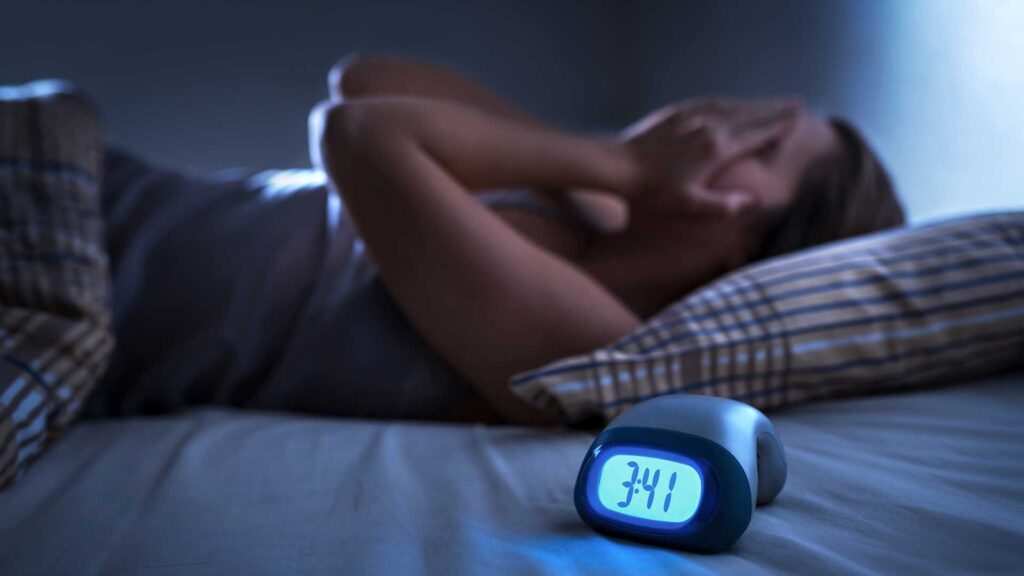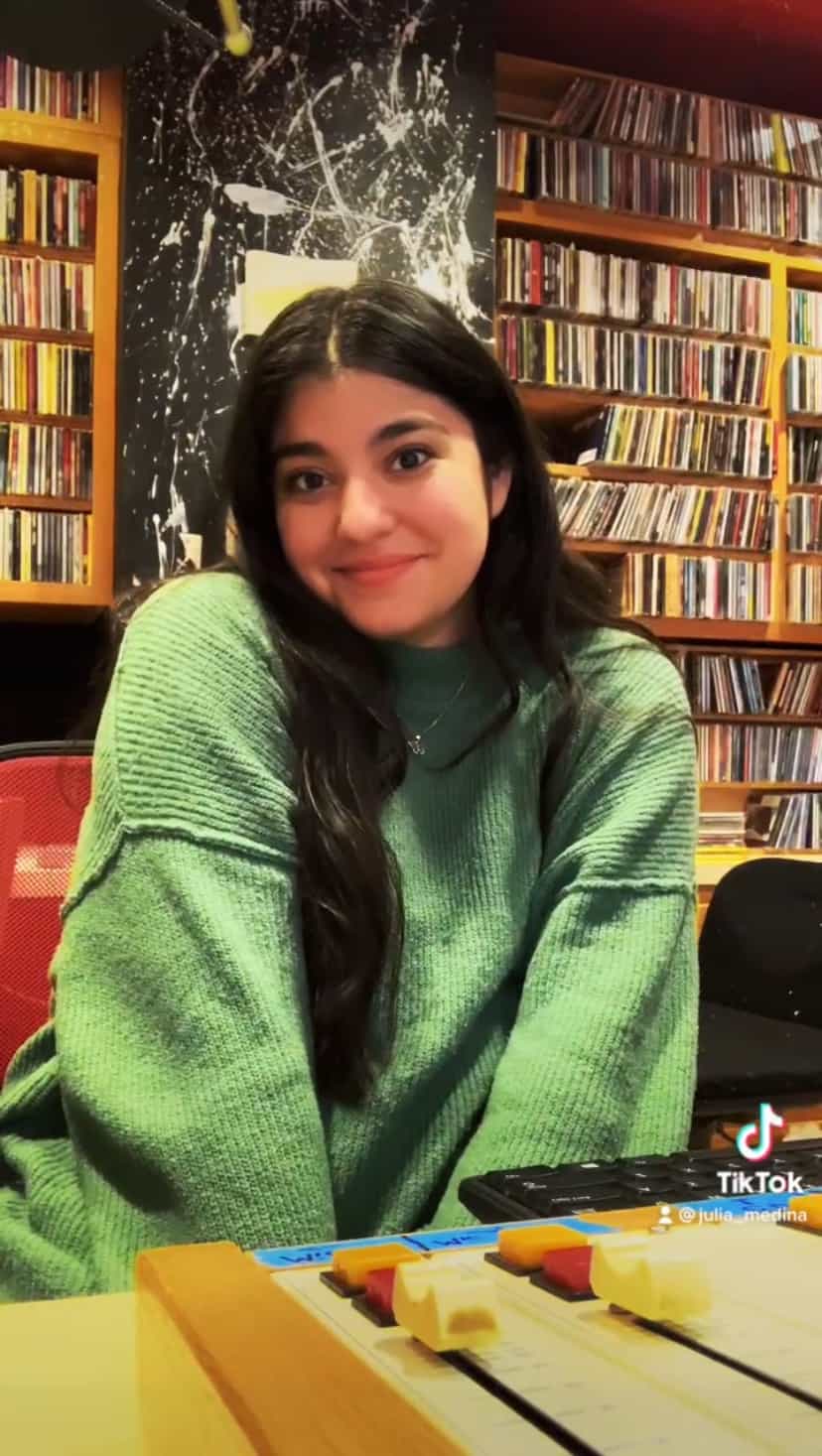
Does it ever feel like you’re the only one struggling to sleep and you don’t know why? If you have ADHD, there might be a reason you haven’t thought of yet.
TikToker Megan (@flaming.adhd) posted a video explaining the things that doctors should tell you when you’re diagnosed with ADHD. In the TikTok she explains that it’s extremely common for people with ADHD to have a later onset of melatonin production. (1)
Megan goes on to explain that having a delayed circadian rhythm can affect sleep for up to two hours, leading to later sleep times for people with ADHD.
“Which explains why my entire childhood I would lay in bed and be so frustrated that I couldn’t fall asleep that I would literally start to cry,” Megan said. “After you get diagnosed I feel like doctors should be like oh yeah here’s a list of symptoms that you’ve probably experienced that you didn’t know were ADHD.”
As she got older, she would doom scroll on her phone to pass the time before she could sleep.
People in the comment section shared similar experiences with one person writing, “all my life no one believed me that my ideal sleeping time is 2 a.m. to 10 a.m. and that no I can’t just got to bed earlier.” (1)
Another added saying, “shifting my schedule to allow for sleep to 2 a.m. to 10 a.m. was probably the least stressed I’ve been in my entire adult life.” (1)
Is there anything that can help? Megan goes on to explain that for her, taking melatonin two hours ahead of when she needs to go to sleep. This has allowed her to feel tired and go to sleep at her needed time instead of staying up waiting for sleep to come.
“It feels so good to actually be tired before getting into bed for like the first time in my life,” Megan said.
Other things that have helped to up her sleep routine is using a sleep mask, earplugs, and letting her phone charge across the room.
To understand why people with ADHD can have a different circadian rhythm, we talked to the experts.
Experts Weigh In
While TikTok advice has given great solutions to help with sleeping problems, it’s always best to ensure the information is accurate with experts.
Dr. Peter Zafirides, a board-certified psychiatrist and co-founder and president of Central Ohio Behavioral Medicine, told Sleepopolis that it is quite common for individuals with ADHD to experience disruptions in their circadian rhythm.
“Research suggests people with ADHD may have a higher prevalence of sleep problems, including difficulties falling asleep, staying asleep and having a delayed sleep wake cycle,” Zafirides said.
Dr. Katherine Hall, a sleep psychologist at Happy Beds, told Sleepopolis that normally the body is programmed to wake in response to light and sleep in darkness, but this can be different for those with ADHD.
“Individuals with ADHD often face challenges in settling down to sleep, possibly due to difficulties in focusing and quieting the mind,” Hall said. “This struggle can lead to a delayed circadian rhythm, as the usual sleep routine is disrupted.”
Zafirides explained that there is not an exact reasoning behind this but theories suggest there may be distinct neurological differences in individuals with ADHD, but further research is still needed.
One study found that sleep problems are reported in 25-50 percent of individuals with ADHD, making this a common struggle. (2)
One of the main struggles Zafirides explained was that people with ADHD would tell him it was hard to sleep due to racing thoughts in their head.
He made the distinction between this being due to anxiety or ADHD by saying, “the person with ADHD will have thoughts running through their head, it is not with a simultaneous feeling of anxiety. It is just racing thoughts that can’t stop.”
Sometimes evening stimulants work to help calm the mind, but you should see a medical professional before taking anything to help with your sleep.
Due to these sleep problems, many ADHD individuals may identify as night owls.
“The challenges associated with ADHD, such as the persistent rumination of thoughts and difficulty falling asleep quickly, contribute to extended nighttime wakefulness,” Hall said.
She continues adding that sleep struggles associated with ADHD can reinforce being more active and alert during nighttime hours.
Ways to Help ADHD Individuals with Sleep
While the best way to find the root of a sleep problem is to speak to a sleep doctor or medical professional, Zafirides told Sleepopolis of three things that adhers can start doing to help their sleep.
Stick to a Regular Sleep Schedule: This includes weekends too. By getting into a habit of sleeping and getting up at the same time every day it helps your body stay on schedule so falling asleep and waking up feels more natural.
Make Bedtime Quiet Time: Take it easy before you tuck in for the night. You could read a bit, soak in a hot bath, try some meditation or breathing exercises, or listen to chill music. Just like Megan mentioned in her video, keeping your phone and other screens out of reach for the last hour before sleep can be really helpful. This keeps the blue light away that messes with your ability to get tired and fall asleep.
Turn Your Bedroom into a Sleep Zone: Make sure your bedroom is set up for the best sleep. Dark curtains, cool temps, and investing in a cozy mattress and nice pillows are worth it. Other gadgets like white noise machines or earplugs can really help too.
Sources
1. Megan or flaming.adhd on TikTok. TikTok. September 2024. https://www.tiktok.com/t/ZPRvjKFW4/.
2.Wajszilber D, Santisteban JA, Gruber R. Sleep disorders in patients with ADHD: Impact and management challenges. Nature and Science of Sleep. 2018;Volume 10:453-480. doi:10.2147/nss.s163074.
Zafirides, MD Peter. Personal Interview. November 2024.
Hall, MD Katherine, Personal Interview. November 2024.



























